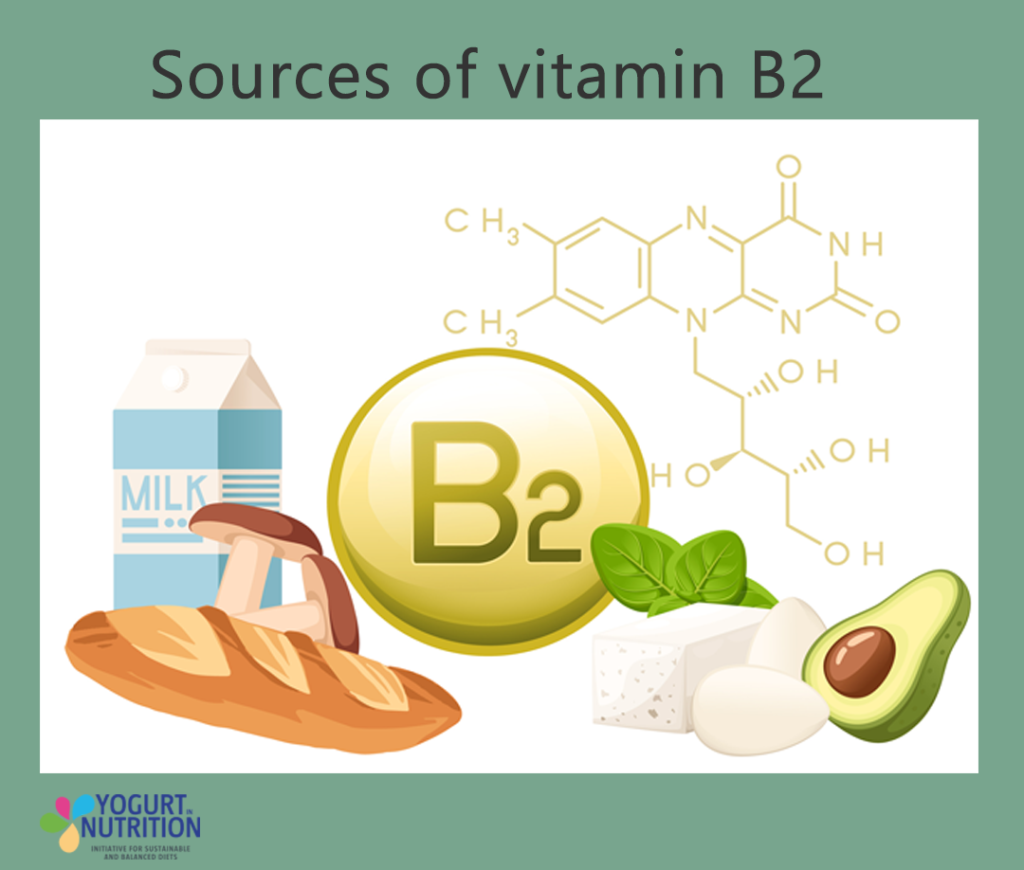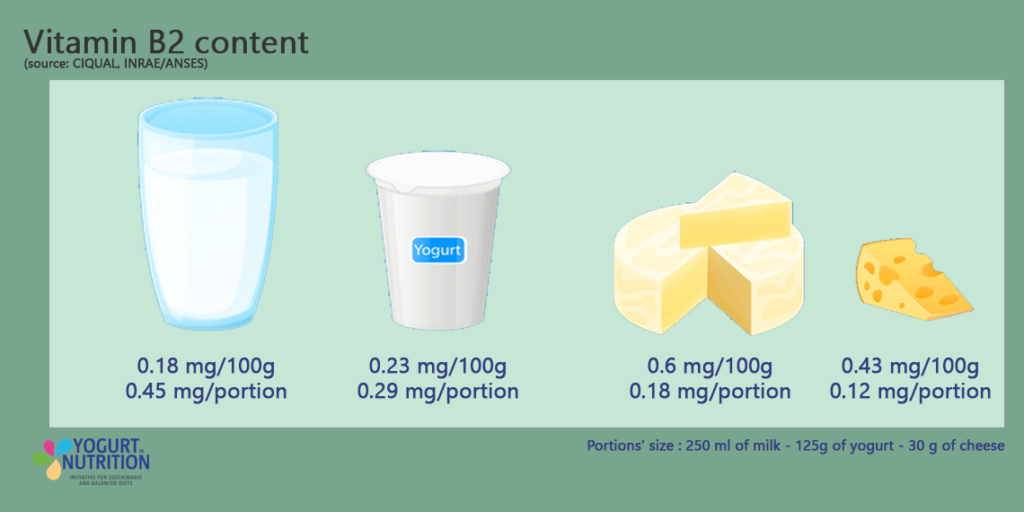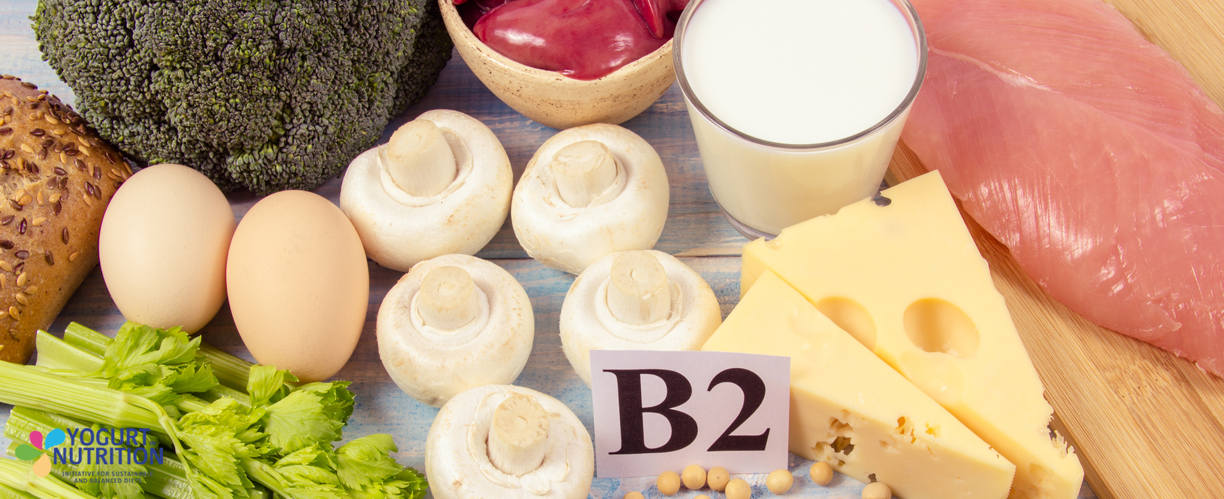Riboflavin known as vitamin B2 is essential to health. Let’s focus on its effects and its presence in the diet.
What is vitamin B2?
Vitamin B2 or Riboflavin is a water-soluble vitamin involved in the maintenance of energy levels. It forms an essential part of co-enzymes Flavin mononucleotide (FMN) and flavin adenine dinucleotide (FAD) which play major role in energy production, cellular function, growth and development, as well as in the metabolism of fats, drugs and steroids.
FAD is involved in the conversion of the amino acid tryptophan into niacin (vit B3). and FMN in the conversion of vit B6 into a co-enzyme.
Riboflavin helps maintain normal levels of homocysteine in blood.
Dietary recommendations
The daily dietary recommendations are:
- 1.3mg for men,
- 1.1mg for women,
- 1.4mg during pregnancy,
- 1.6mg during lactation.
When excess vitamin B2 is consumed, it is either not absorbed or is excreted in urine therefore consuming high quantities is relatively harmless and no safe upper limit has been defined.
Deficiency is very rare in developed countries. Symptoms are non-specific and include skin disorders, oedema of mouth and throat, cheilosis (swollen cracked lips), hair loss, reproductive problems, sore throat, itchy and red eyes. Typically, people who have a vitamin B2 deficiency also have deficiencies in other nutrients such as other B vitamins.
Sources of vitamin B2

90% of vitamin B2 found in the diet is in the form of FAD or FMN, only 10% is found in its free form, glycosides or esters. However, the main form found in eggs and milk is free riboflavin.
Vitamin B2 is found in a multitude of foods especially in animal sources such as eggs, organ meats, lean meats, milk and dairy products. It is present in some plant sources such as mushrooms, nuts (ex: almonds) and dark leafy green vegetables. Grains and cereals can be fortified in B2, this is the case in around 56 countries in the world including the USA.
Vitamin B2 in dairy

In the USA, the largest contributor to riboflavin in the diet is milk and milk-based drinks. Milk and dairy products contribute to around 25-27% of riboflavin daily intake in the UK population.
As such, dairy is a great source of vitamin B2. Yogurt is nutrient dense and provides a multitude of vitamins and minerals essential to health. 100g of yogurt contributes to around 15% of vitamin B2 daily intake.
It is recommended to consume about 2-3 portions of dairy per day. Such recommendation varies across countries.



